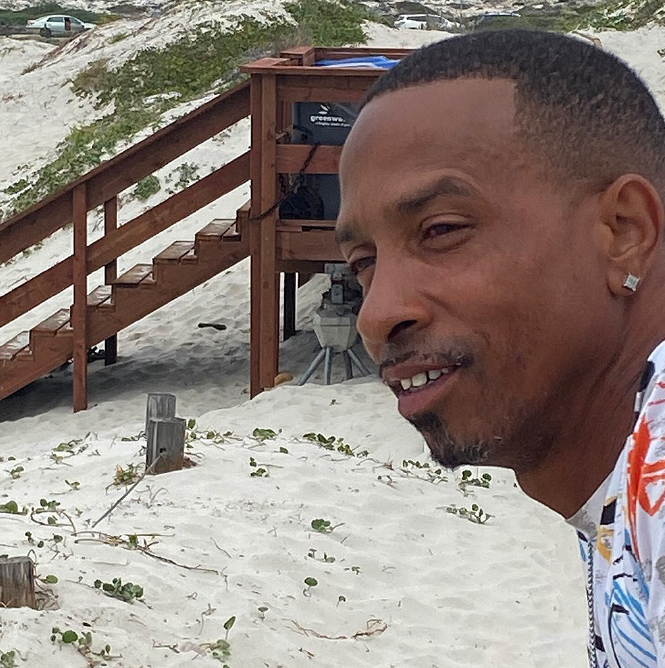Touro Partnership To Free The Innocent From Prison
Non-profit organization partners with Touro to free the factually innocent from prison.

Innocent until proven guilty is a concept that serves as a real bedrock of what most Americans understand this country to be – we are all free unless we cause that freedom to be denied through provable facts.
In practice, however, the criminal justice system is not perfect, with the result being that innocent people are convicted of crimes they did not commit.
The percentage of these flawed outcomes is as a percentage, an estimated 4-6%, but the overall incarceration rate in the US is so high that it amounts to a lot of individuals.
A Pew Center study showed that there are 2.1 million inmates in jails and prisons across the country – which ranks the inmate population as the 36th largest state. There are more people living in prisons in the US than living in Nebraska and 13 other states.
A partnership between Exonerated Nation, Touro University California, and Kaiser Permanente is framed around the reentry needs of innocent individuals who are exonerated and then released.
Dr. Gayle Cummings, the director of Touro’s Public Health program and a board member with Exonerated Nation, started examining these facts more closely for both public health and social justice reasons. What studies revealed she found alarming.
The number of those who are “factually innocent” is not entirely clear. However, a study published in Criminal Law Bulletin suggests that, of the 1 million felony convictions in the US each year, somewhere between 5,000 and 10,000 factually innocent people are sent to prison each year.
Obie Anthony, the founder of Exonerated Nation, was one of those numbers. He was sent to prison at the age of 19 and remained there for 18 years before being exonerated. Anthony points to prosecutorial misconduct in his case as a prevailing factor for the conviction, which is seemingly more common than most might think.
A report issued by the National Registry of Exonerations showed that of 121 exonerations just in 2021 alone, 106 cited official misconduct as a reason for the overturn of the ruling.
There is a financial cost that everyone pays in these cases – from having to house inmates who should not be in prison – to the eventual lawsuits and settlements that spawn from these exonerations which, in Anthony’s case, amounted to a combined $13.5 million paid out by the city and county of Los Angeles.
There is a great price that can’t be measured in dollars, which is the main concern for Exonerated Nation, Touro, and Kaiser Permanente.
It’s stressful on a family when a loved one is incarcerated but that anxiety is amplified when there is a case of wrongful conviction, Anthony said.
“It creates a lot of stress and anxiety for the family, especially if it’s a father or a mother that’s been removed from the household,” Anthony said. “That then adds on top of the anxiety of the individual going through the experience.”
Those negative effects compound over the years, which is part of the motivation for Kaiser Permanente’s involvement.
Cally Martin, a Community and Social Health leader at Kaiser Permanente said studies show these impacts are real and potentially catastrophic.
“We know that people who have experienced trauma and have not had opportunities for healing have poorer health outcomes,” Martin said. “Studies have shown that their lifespans can be shorter.”
These opportunities are a central component of the partnership with Kaiser Permanente and Exonerated Nation.
“We’ve been so fortunate that Kaiser Permanente has been doing so much of the work around healing (for) Exonerated Nation,” said Dr. Cummings.
With the support of Kaiser Permanente, Exonerated Nation has been offering healing retreats since 2019. These retreats help exonerees to heal from trauma while also learning powerful skills to transform unjust systems that contribute to false imprisonment. The retreats are not only for the exonerees but also for their spouses and children. Exonerated Nation and Touro are working to expand healing opportunities for the wrongfully convicted, or “framed and convicted” as Anthony prefers are they continue their work to bring about legislation that combats wrongful conviction in the first place.
It takes the work of numerous outside entities to overturn these wrongful convictions as it stands now. Anthony was wrongfully incarcerated, and his case finally gained traction nearly by accident.
Reggie Cole was a second defendant in the same case that led to Anthony’s incarceration and, following a prison incident, an attorney examining Cole’s original conviction recognized a number of irregularities in the original investigation and hearing, which, by domino effect, ultimately led to Anthony’s release.
The possibility of future legislation aside, it’s vital, Anthony said, that groups like Touro, Kaiser Permanente, and Exonerated Nation work on behalf of the wrongfully convicted on the outside, because help from within is in short supply.
“It’s super isolating,” Anthony said. Friends and family can only visit so often, and other inmates are normally not interested in whatever complaints the truly innocent have.
“Nobody wants to hear it. Even if they know for certain that you’re 100 percent not guilty, nobody wants you rubbing that sort of thing in their face.”
Whether these cases happen by willful misconduct or simply by genuine mistake, it is an issue that cuts at the very core of what America is about and these errors should be concerning to everyone.
The mechanisms to fix these wrongs are slow and not applied quickly enough to enough cases for those in prison for crimes they did not commit. Settlements and apologies can mend some wounds to a certain extent, but what’s lost in the process is lost forever, Anthony said.
“They can’t right what they did to me,” he said. “They took 18 years of my life away.”
His purpose in life now is to do what he can to prevent the same thing from happening to others.
